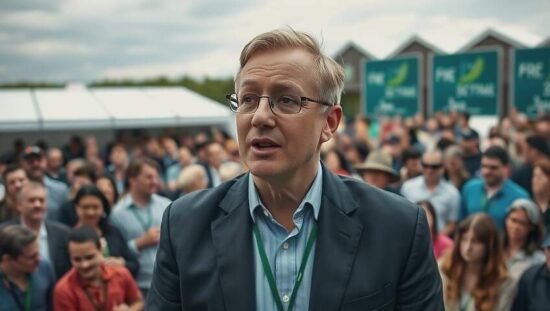Lower Saxony’s Environment Minister Christian Meyer has indicated a cautious approach towards carbon capture and storage (CCS) technology, suggesting its application should be limited to sectors where emission avoidance is particularly challenging. In an interview, he stated that CCS should only be considered where emissions cannot be prevented through other means, citing the cement industry as a potential example where the technology could contribute to climate neutrality in a restricted capacity.
However, Meyer cautioned against viewing CCS as a simple solution to climate change, explicitly warning against the continued operation of coal or gas power plants reliant on CCS as a means of prolonging the use of fossil fuels. This position emerges as the Federal Minister for Economic Affairs proposes legislation that would permit the use of CCS not only for industrial applications but also for gas-fired power plants and the production of so-called “blue” hydrogen from natural gas.
Currently, legislation in Lower Saxony largely prohibits CCS. At the federal level, a new law is being prepared to enable the deployment of both CCS and carbon capture and utilization (CCU) technologies on an industrial scale, with potential storage sites identified in the North Sea and on the continental shelf.
The Intergovernmental Panel on Climate Change (IPCC) acknowledges CCS as a crucial instrument for managing unavoidable emissions in heavy industries like cement, steel and chemicals. However, the IPCC also cautions that relying on carbon removal technologies could undermine the urgency of immediate emission reductions. Moreover, CCS projects have historically proven costly and difficult to scale, resulting in actual capacities falling short of projected goals. A significant challenge remains ensuring the long-term stability of underground storage sites, preventing leakage that would ultimately contribute to global warming.





